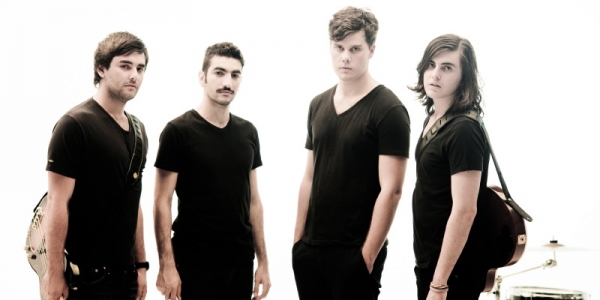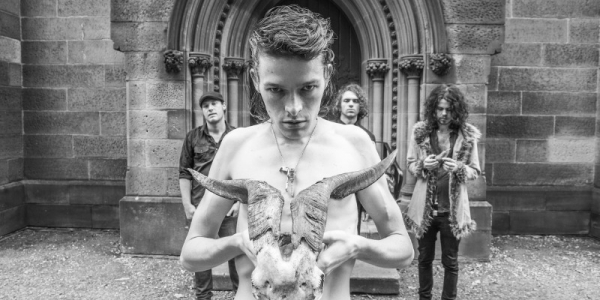Maher and co. recently returned from a whirlwind experience in the city of angels, where they flirted with greatness. Perspective would eventually grace the band, but at the time, they soaked up the opportunity. “We got picked up on a web blog,” says Maher, reached on the phone from the band’s home base in Sydney. This show, the Artists in Music Awards was the whole reason. We were nominated and we were asked to play. So we flew out there, you know, being 20, 21, we were so excited. It was a blast; we ended up winning the award and we had a great week. It was very young and dumb though, to be honest,” he laughs.
As much as it was an experience in indulgence, Maher admits that the trip served as a bonding experience for the young band. “We’ve all been close friends since high school and to experience that kind of city together definitely helped us form a closer bond. That social aspect was important to us.”
Looking back now, Maher can speak about the trip with a level head. While Monks Of Mellonwah was lauded as up-and-comers, he understands how long a road the band has ahead of them.
It’s that kind of maturity and perspective which may very well prove to be the band’s saving grace.
“[The trip to Los Angeles] gave us insight into the Australian music industry and just how the industry in general works. The American industry is massive, and while the Australian industry is very healthy, it’s just on a much smaller scale. We did lots of interviews, lots of parties, and to be honest, we weren’t expecting any of that. As cool as it was to be there and pretending to be this big international band, we’ve still got some work to do.”
Maher and the Monks Of Mellonwah won’t simply look at their time in Los Angeles as a story to tell their grandchildren. Instead, they managed to make ties with people close to those who influenced the band, namely Howie Weinberg. Weinberg, who has worked with Red Hot Chili Peppers amongst others, mastered the band’s latest EP.
As Maher tells it, being able to work with someone so close to the Peppers brings things full circle. The seminal funk rockers may not necessarily be heard within Neurogenesis, but their impact on the band cannot be understated.
“Red Hot Chili Peppers and Muse weren’t necessarily influences, but they were the first two bands that we as a band all identified with and may have even brought us together. There’ve been bands that we’ve bonded over since then. ‘90s hard rock was very important for us. We started out playing Muse covers,” he chuckles.
Maher may have been a latecomer to the band, joining Monks Of Mellonwah after their previous EP, Stars Are Out. But he counts himself amongst the converted, and acknowledges what the band can learn from the energy of their predecessors.
“I never really got it, until I saw them live. There’s so much energy onstage, sometimes they get naked, you never know what’s going to happen. They always leave it all out on the table. As a band we all look quite upon them very favourably. There’s that energy that we’re all addicted to.”
Behind Monks Of Mellonwah’s energy is a conscious approach to the lyrics. Maher examines a breadth of topics including that of the creator of the atom bomb, Robert Oppenheimer, on the title track.
Los Angeles may have primed the world for Monks Of Mellonwah, but as Neurogenesis proves, there’s more to this four-piece than meets the eye.
“I think it’s an interesting relationship; working for science and working so hard towards something and then when he finally finishes his masterpiece, it killed thousands of people. Working so hard for something that ultimately ended horribly; it’s about keeping focus on what you want. Nothing in my personal life comes across in the song, but it’s an interesting journey that this guy went through that I wanted to tell.”
“In a way I wanted to personify the story,” continues Maher. “I wanted to think about what he was going through. His frustrations, maybe he went to the beach when he retired, whatever. I wanted to try and get in his head. It’s not explicit or obvious in the lyrics, but I was trying to examine his journey.”
BY JOSHUA KLOKE







